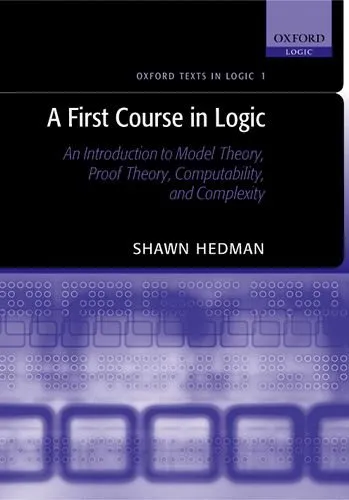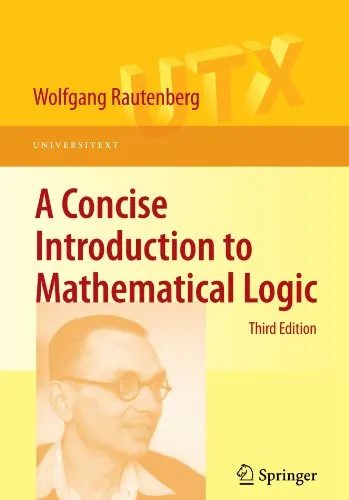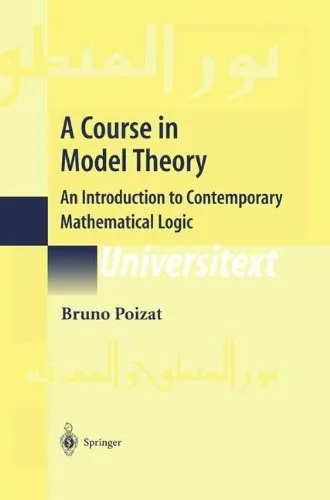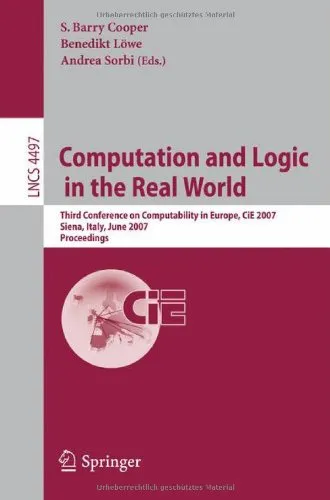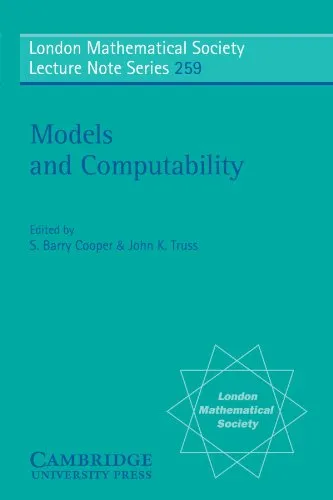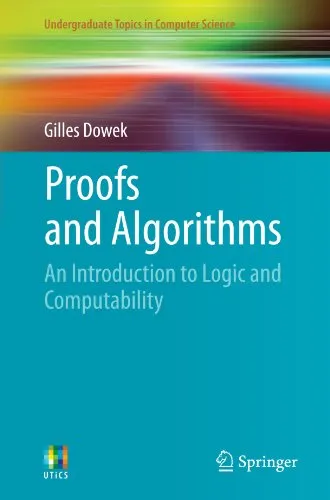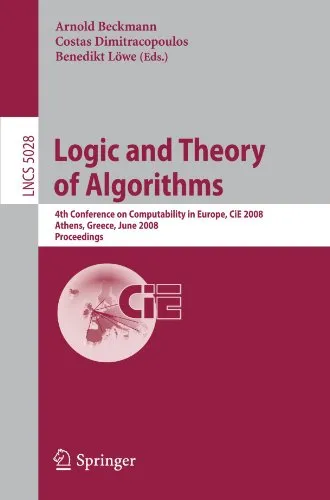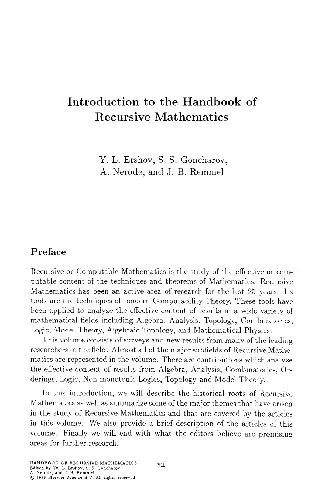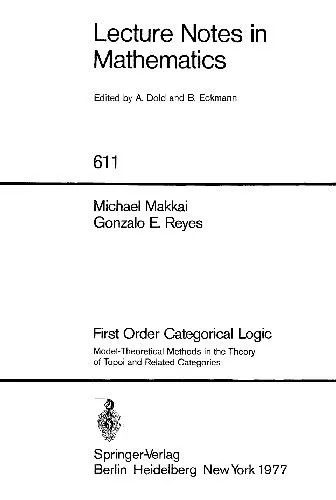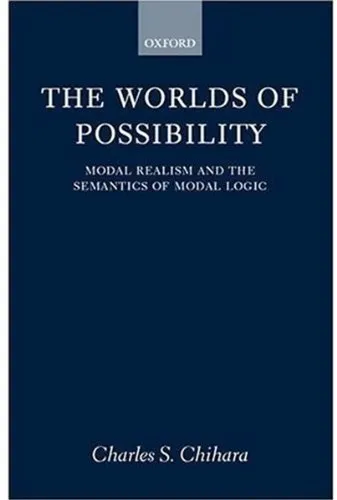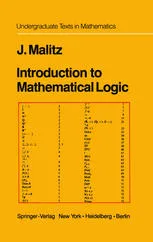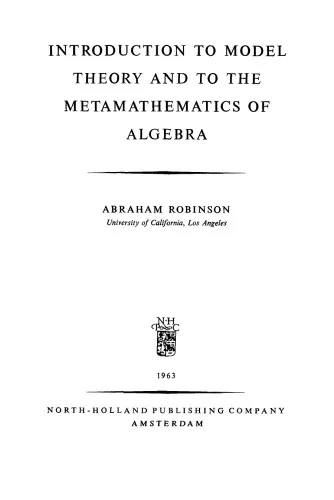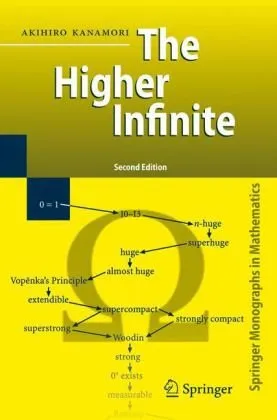A First Course in Logic: An Introduction to Model Theory, Proof Theory, Computability, and Complexity
4.3
Reviews from our users

You Can Ask your questions from this book's AI after Login
Each download or ask from book AI costs 2 points. To earn more free points, please visit the Points Guide Page and complete some valuable actions.Related Refrences:
Introduction to 'A First Course in Logic'
Logic forms the bedrock of mathematical reasoning, computer science, and philosophical inquiry. 'A First Course in Logic: An Introduction to Model Theory, Proof Theory, Computability, and Complexity' is designed to guide students and enthusiasts through the essential domains of logic, providing a comprehensive foundation in these interconnected fields.
Detailed Summary of the Book
'A First Course in Logic' begins with a fundamental exploration of propositional logic and predicate logic, establishing the necessary groundwork for more advanced discussions. As the reader progresses, the book delves into model theory, offering insights into the structures that satisfy given logical formulas. This section provides a critical understanding of the semantics of logic language, emphasizing the relationship between syntax and semantics.
The exploration continues into proof theory, where the syntax of formal proofs becomes the focal point. Readers will learn about various proof techniques and the role of proof systems in validating logical assertions. Computability theory introduces the concept of algorithms and decision problems, guiding the reader through essential notions like Turing machines and recursive functions.
Finally, the book ventures into complexity theory, shedding light on the efficiency of algorithms and computational limits. This section discusses classes like P, NP, and NP-complete, equipping readers with the knowledge to understand computational complexity's challenges.
Key Takeaways
- Comprehensive exploration of the foundations of logic, including propositional and predicate logic.
- In-depth analysis of model theory and its applications to logical structures and semantics.
- Detailed examination of proof theory, focusing on formal proofs and proof systems.
- Introduction to computability theory, algorithmic processes, and decision problems.
- Insight into complexity theory, including the study of computational resources and problem classes.
Famous Quotes from the Book
"Logic is the calculus of the mind, the precursor to objective understanding."
"In the realm of logic, clarity is the ultimate goal, and precision is the path to achieving it."
Why This Book Matters
This book is not only an academic endeavor but a bridge that connects the theoretical foundations of logic with real-world applications across diverse fields. In a rapidly evolving technological landscape, the principles of logic serve as a crucial underpinning for advancements in artificial intelligence, automated reasoning, and data science.
By covering topics from model theory to complexity, 'A First Course in Logic' equips readers with the analytical tools necessary for problem-solving and innovation. Understanding logic's role in computability and complexity is essential for researchers and practitioners aiming to navigate the challenges of today's complex systems.
Whether you are a student of mathematics, computer science, or philosophy, or an enthusiast keen on expanding your logical knowledge, this book presents an invaluable resource that fosters critical thinking and intellectual growth.
Free Direct Download
You Can Download this book after Login
Accessing books through legal platforms and public libraries not only supports the rights of authors and publishers but also contributes to the sustainability of reading culture. Before downloading, please take a moment to consider these options.
Find this book on other platforms:
WorldCat helps you find books in libraries worldwide.
See ratings, reviews, and discussions on Goodreads.
Find and buy rare or used books on AbeBooks.
1400
بازدید4.3
امتیاز0
نظر98%
رضایتReviews:
4.3
Based on 0 users review
Questions & Answers
Ask questions about this book or help others by answering
No questions yet. Be the first to ask!
